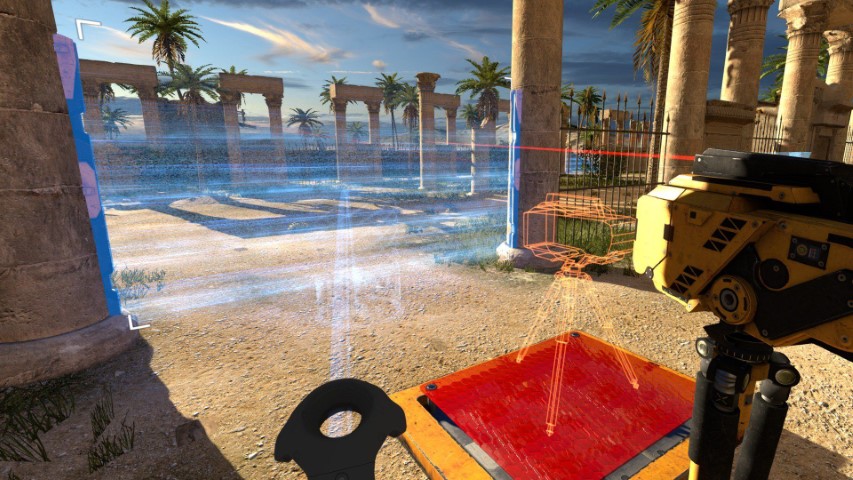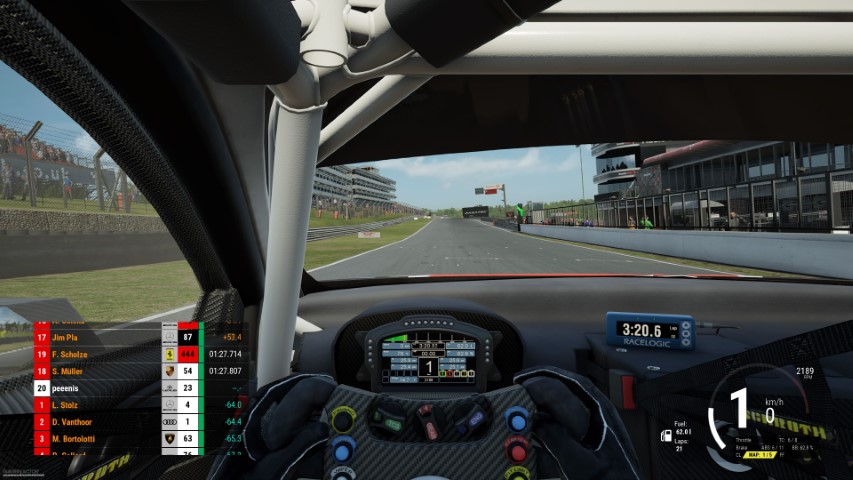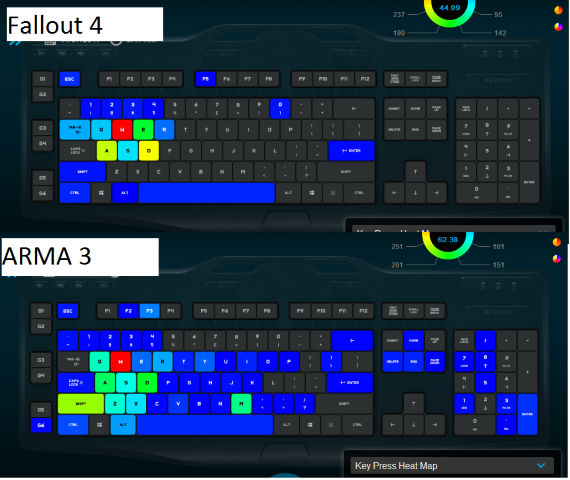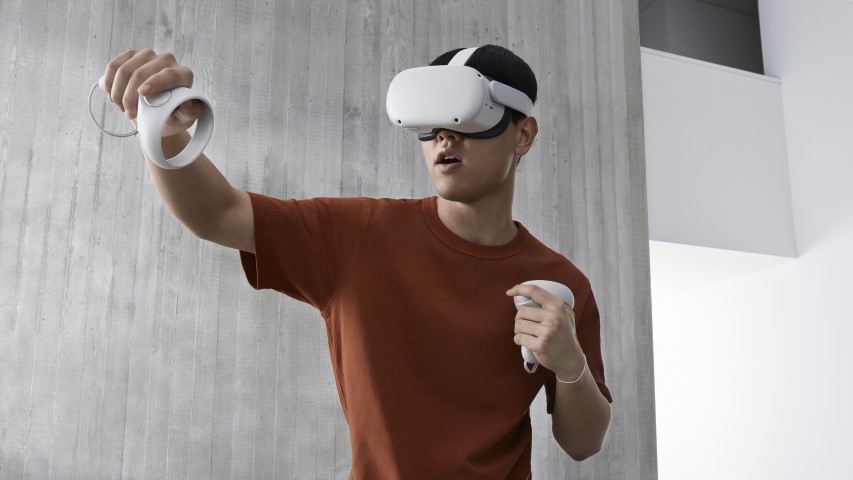
Virtual reality has been slowly gaining in popularity over the past decade. What started out as a niche, janky, and limited if impressive experience for the highest-end PC Gamers is now a refined, content-rich hobby that even mid-range computers and some consoles can actually dabble in. Hell, a few headsets do not even need another device to give their users a stunning experience!
This has led some people to believe that virtual reality is *the* future of gaming, the next frontier, one that supersedes current games. The language they use suggests that “traditional” monitor or TV gaming is obsoleted and they imply that VR should replace it. This of course rubs some people, even other VR users the wrong way for understandable reasons. It is nonsensical, since some genres or types of games within said genres would suffer if they were on VR. We will explore this today.
The current state of Virtual Reality
There are already a few amazing games that showcase just how amazing VR is to play. Yes, everyone here likely knows of Valve’s newest AAA game, the VR-exclusive Half-Life: Alyx, a game that absolutely proved that AAA games can have a great future in VR at last.
It is weird how this seems more interesting than a normal math lesson…
It is not the only one though. Croteam’s “The Talos Principle VR” is also an awesome showcase for what VR can do with an already proven title, one that is exceptional no matter where it is experienced.
The indie scene is embracing virtual reality and this is where most current titles reside. We know it is not too difficult for developers or modders to make the switch to VR, which is an awesome thing since this is where a lot of experimation is currently happening.
Virtual Reality is the future…
Where is VR a truly perfect fit? There is a list of genres I believe are a nigh-perfect fit for this new way of experiencing gaming.
Horror is an obvious choice and I am taking it. Titles like Amnesia or Penumbra, System Shock, SCP Labrat – these are games where the players move relatively slowly and are not too mechanically complex. Highly interactive worlds and a reliance on slow exploration. They work amazingly well on a traditional screen, but virtual reality seems to be an even better fit for these titles.
Soma would rock in VR… too bad Frictional Games for some reason avoid this tech.
For many of the same reasons above, virtual reality is a great choice for first person puzzle games. The wonderous titles of Cyan Worlds, our aforementioned star – The Talos Principle from Croteam in VR. Once more they are perfect for virtual reality due to their relaxed and explorative nature. Even slightly faster-paced ones like Portal would work quite well in VR, provided the user has experience within the platform.
Slower paced first person games like DOOM 3 or System Shock? We already saw the source-ports of DOOM 3 for PC, as well as the official Doom 3 for PlayStation VR showcase just how well some of these games will make the jump to this new technology.
Games set in cockpits, be they ones of planes or helicopters or even of race cars are also amazing in Virtual Reality. Titles like Project CARS 2, Assetto Corsa Competizione, iRacing or Microsoft Flight Simulator can definitely see a benefit in having VR modes for players to dabble in .
… but only for some games.
The reality is that as of right now, some genres are still overall better fits for the classical setup of a keyboard and mouse / controller plus TV or monitor.
A fast-paced FPS like Doom Eternal or Unreal 1? Those games are too demanding on speed and extremely quick and precise movements, they are a bad fit for all current VR technology, and that is even if you can stomach them for a long time, something even exert VR users would struggle with in such mobility-focused titles. The sheer movement speed and constant jumping around and climbing over ledges, platforming etc. is going to crack even the most experienced VR users within an hour or so.
Ironically, titles like ARMA for example would also be poor choices, at least for advanced players. They have a lot of mechanics and many of them are quite involved in their control. They require most of the keyboard already and would just not be a good overall fit for any modern device other than traditional mouse and keyboard gaming.
Fallout 4 vs ARMA 3 for the average gamer. A very big difference, and it would be even bigger for an expert!
What about games like Dark Souls or Witcher 3 or Metal Gear Solid? Those are not perfect choices for VR either. There is some work towards getting third person games working on VR, but it is still sub-optimal, this also goes for 2D or 3D platformers. It is just an inherent strength to the tech – it works best with first person titles.
Management, Tycoon, Strategy titles in most of their iterations are also problematic for this technology at this moment in time. Same for most sports games, especially if they are simulating world-class athletes as the main playable characters. Suffice it to say, games with a third person or managerial point of view are not a good fit for this technology.
There are also other factors
One more thing that VR inherently has a problem with is the sheer attention it requires. You cannot as easily share your attention between your game and your environment. It is also not optimal for social gaming with others, since you will miss out on the body language of people around you. Party gaming, being with one’s friends while gaming is awesome but doing so in VR would ultimately be far more complicated than on a massive TV.
No way to be a social butterfly like this.
The fact that one has to specifically put on a headset and immerse themselves that way and to also still have at least some energy left at the end of a possibly long workday – this too is something some VR enthusiasts seem to forget.
And honestly, if we compare a theoretically perfect MicroLED-based VR device with no wires to a theoretically perfect MicroLED HDR monitor/TV with an awesome surround system, the fact is that while VR would still be overall more immersive, both would be extremely potent at immersion. The delta between the experiences would shrink to some extent at the pinnacle implementations of these technologies.
Virtual Reality has to be tried!
Virtual Reality is a unique experience and I can easily recommend it to everyone. It is not a replacement to traditional gaming and honestly, I believe that neither traditional gaming nor VR are not going anywhere in the following decades. For many, it is a new way to experience many of our favourite genres and it is also slowly opening up gaming to whole new experiences!
The articles content, opinions, beliefs and viewpoints expressed in SAPPHIRE NATION are the authors’ own and do not necessarily represent official policy or position of SAPPHIRE Technology.


























